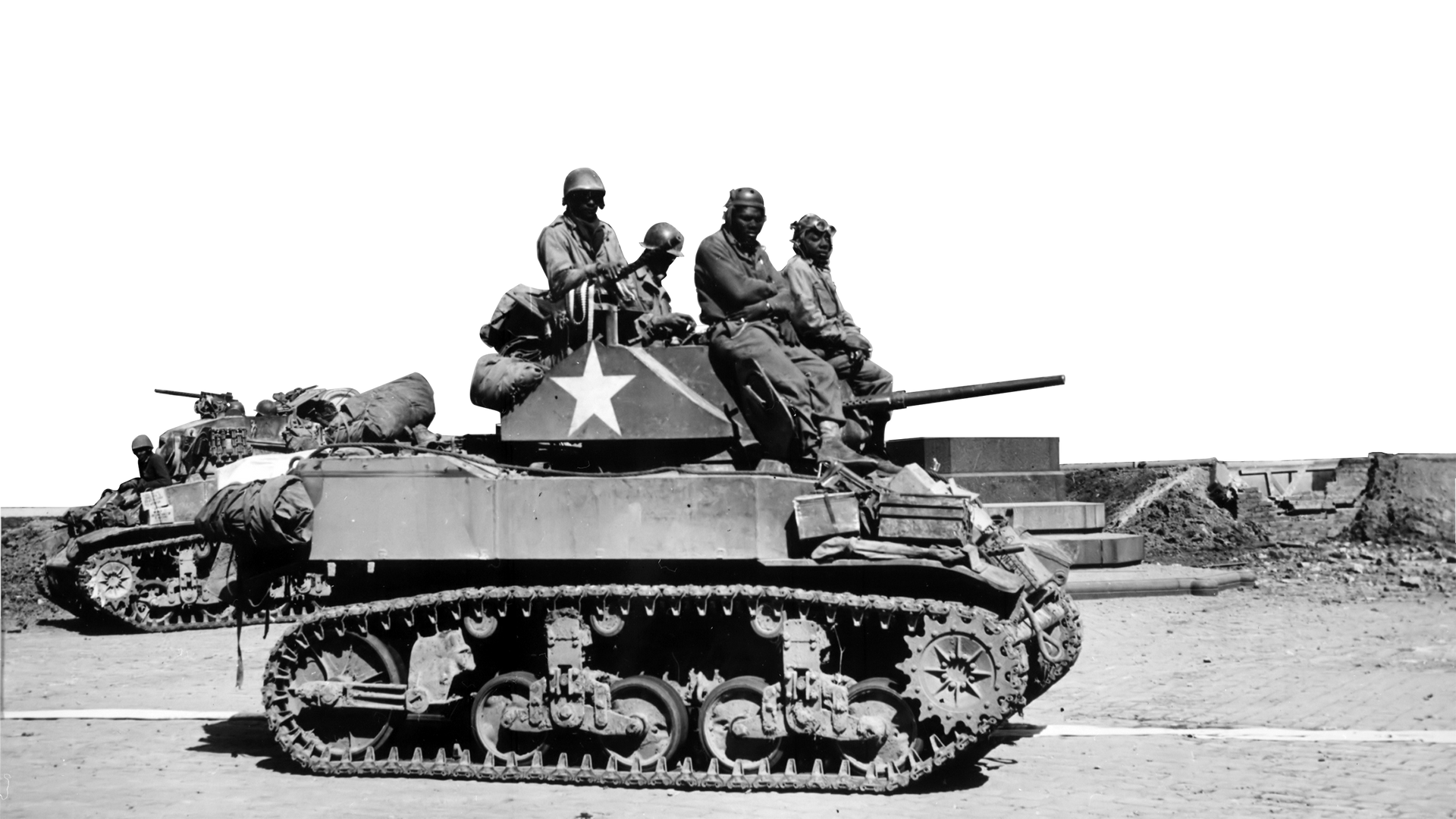
Black Panthers of the 761st


WWII
1941—1945
Black Panthers of the 761st
World War II (1941–1945) was the last war in which the U.S. Armed Forces remained fully segregated by race. More than one million African American men and women served in both support roles and combat units.
ShowHide Transcript
World War II was the last war in which the U.S. Armed Forces remained fully segregated by race. More than one million African American men and women answered the call to serve their country in both support and combat units. The Tuskegee Airmen, the first Black military aviators, are a famous example.
One of those units was the Red Ball Express, a truck convoy system that supplied advancing Allied troops after D-Day.
Another was the 761st Armored Battalion, formed in early 1942, nicknamed the Black Panthers. The unit’s motto was “Come Out Fighting,” and that they did.
The Black Panthers faced intense resistance from German Forces as their armored units pushed into northern France in autumn of 1944. Trezzvant W. Anderson recounted:
“The inside of a tank is a helluva place to be, when red hot, white hot steel fragments are ricocheting around, and just can’t go anywhere else but inside of that tank.” –Trezzvant W. Anderson
During the Battle of the Bulge, the last major German offensive in the West, the 761st faced some of the most brutal fighting of the war.
At the Belgian village of Tillet, their tankers charged German troops dug in on a hill.
Every other attempt to break the German line had failed—it was up to the Black Panthers.
Their tanks fired as they advanced up the incline, storming through a hail of counter-fire.
A gunner named Frank C. Cochran shouted over the radio: “They’ve hit me three times, but I’m still giving them hell!”
After a day of brutal fighting, the Black Panthers broke the German defenses despite taking heavy casualties.
The 761st would go on to defend the 101st Airborne during the Battle of the Bulge. The Black Panthers held the line against some of the most elite units in the German army, often fighting alongside other all-Black regiments.
One of those units, the 333rd Artillery, took more casualties than any other. They kept their guns firing as their positions were overrun, fighting with artillery, rifles and knives as ammunition ran out. The Battle of the Bulge was won thanks to those heroic sacrifices.
As the war in Europe drew to a close, The 761st pushed on across the Rhine River into Germany amongst the vanguard of allied forces.
The Panthers were among the first Allied soldiers to discover the Gunskirchen concentration camp in Austria, which held more than 15,000 starving Hungarian Jews.
On returning home, many Black veterans struggled to put the horrific scenes of the Holocaust and the memories of hard fighting behind them. They also faced racial segregation and prejudice back home, as Floyd Dade Jr. remembered:
“We didn’t have equal rights at home. Democracy was against us..."
It was only in 1978 that the 761st was granted the highest combat award a unit can receive: the Presidential Unit Citation.
Sergeant Ruben Rivers was also posthumously awarded the Medal of Honor in 1997.
But the honorable actions of Black service members during World War II helped change minds within the military. In July 1948, thanks to the service of units like the 761st, and the advice of then-General Benjamin Davis, Harry Truman desegregated the U.S. Armed Forces. While full desegregation would take time, it was the beginning of the integrated American Armed Forces we know today.
“I was just fighting for my country.” –Floyd Dade Jr.
…the 761st Armored Battalion formed in early 1942. The unit’s motto was ‘Come Out Fighting.’ And that they did.